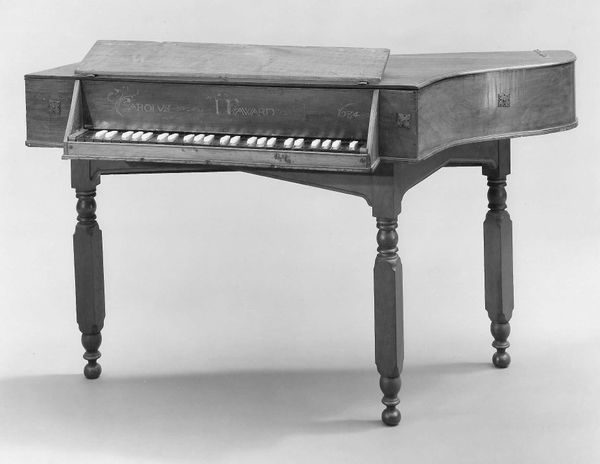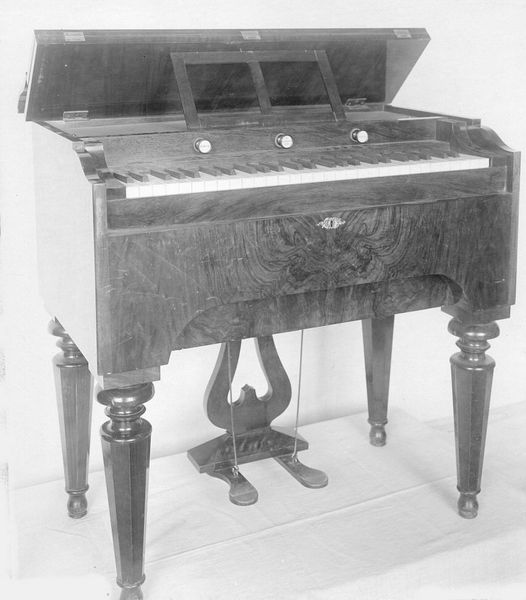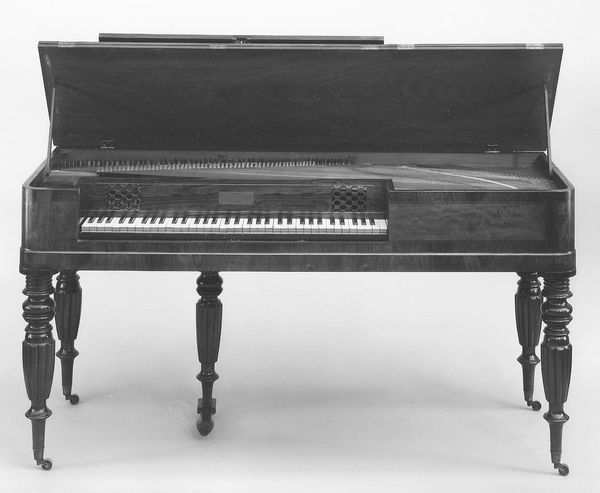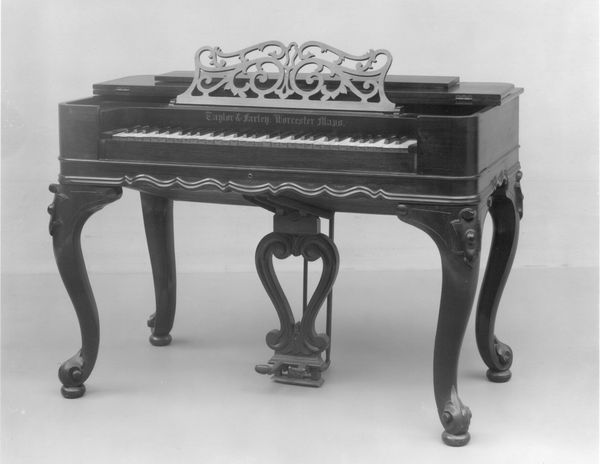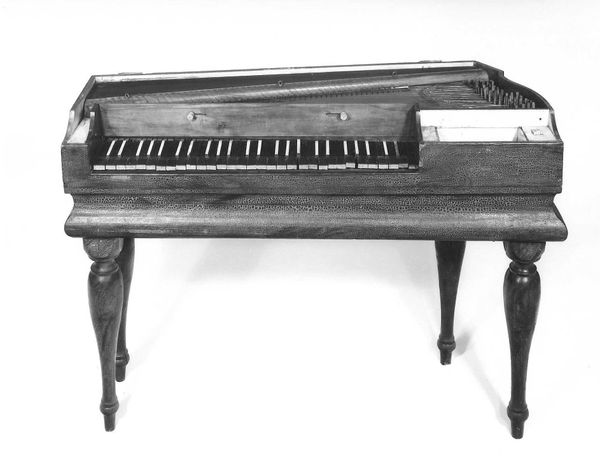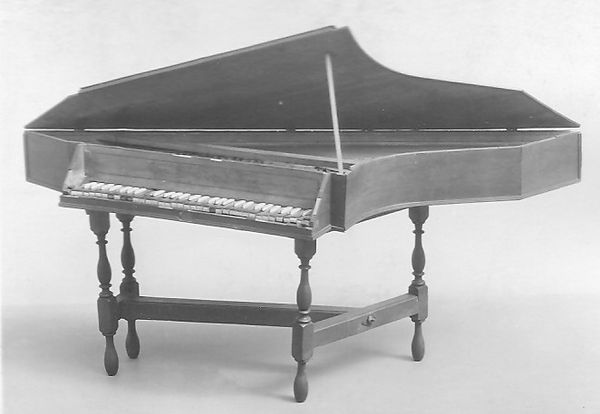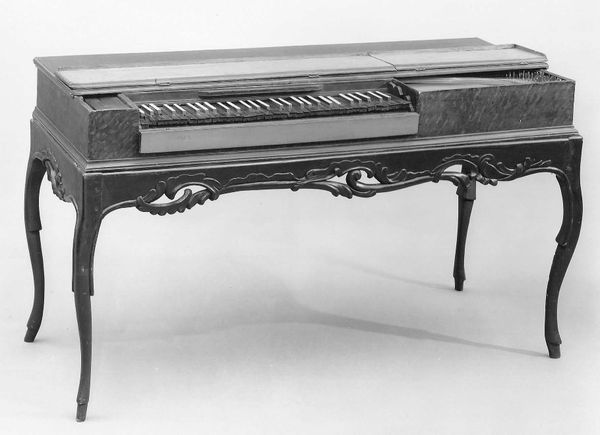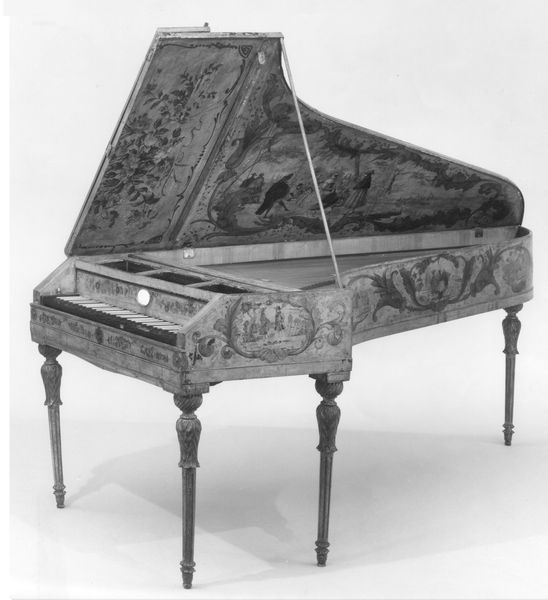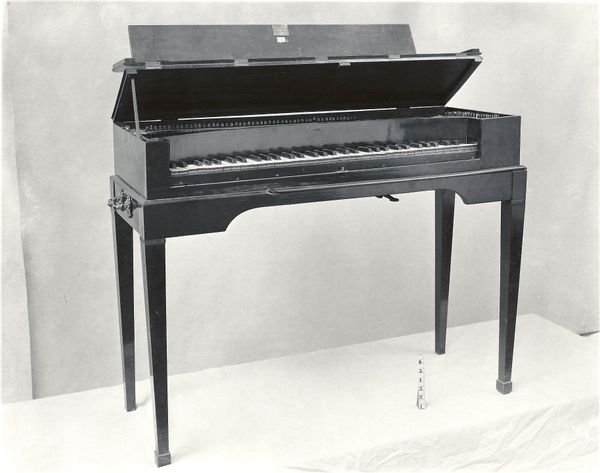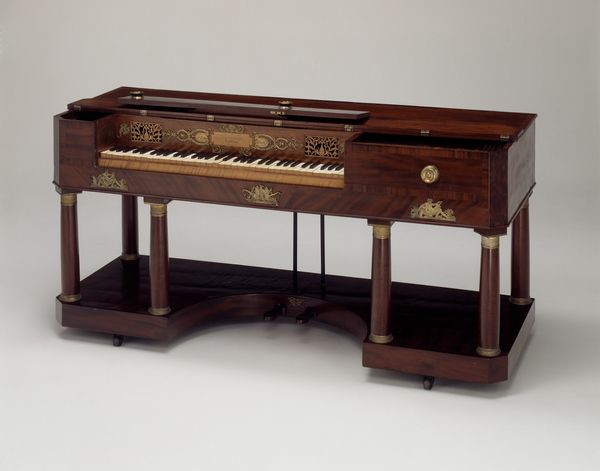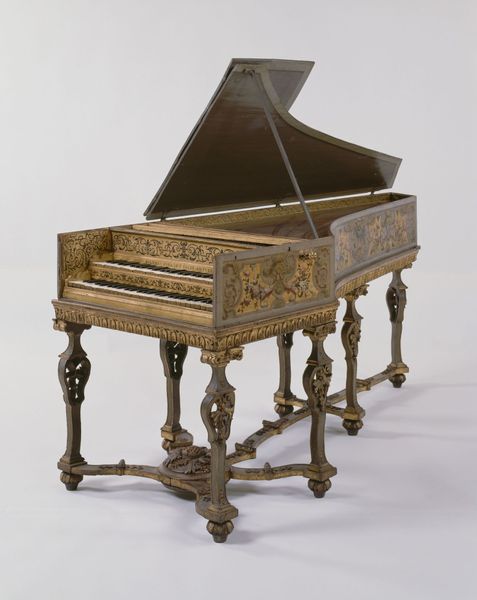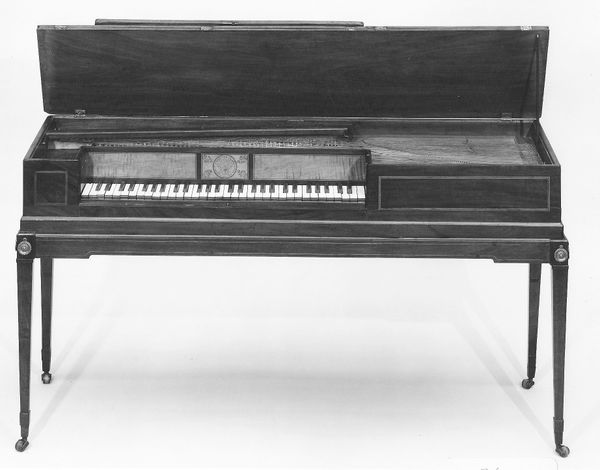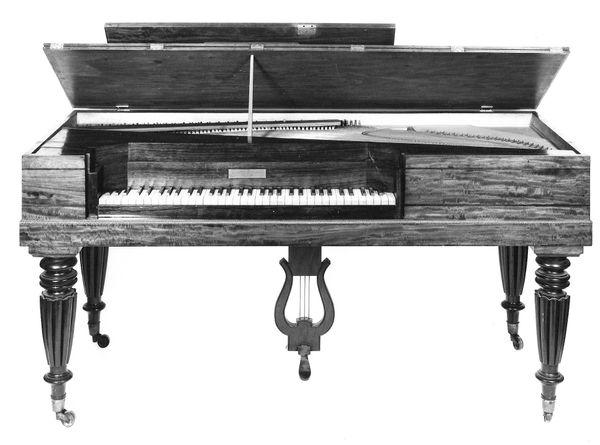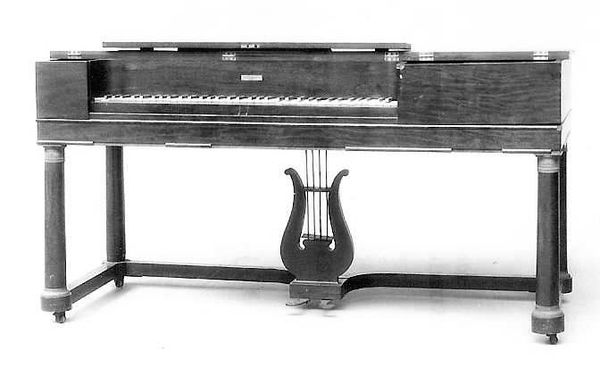
metal, wood
#
metal
#
sculpture
#
wood
#
musical-instrument
Dimensions: W. of case across bottom: 179.3 cm (70-1/2 in.); L. of case across bottom: 82.1 cm (32-3/5 in.); D. of case without lid: 31.1 cm (12-1/4 in.); Legs (including metal casters and support blocks): 60.5 cm (23-7/8 in.); 30 octave span: 49.4 cm (19-1/2 in.) (Legs are removed)
Copyright: Public Domain
Curator: Good day. Today, we're exploring a square piano crafted around 1850 by Jonas Chickering. You can currently find it here at The Met. It's predominantly constructed from wood and metal. Editor: Oh, my goodness, what a beauty. It has such a somber presence, doesn't it? Dignified. Very rectilinear, until you get to those beautifully carved legs... almost like they're trying to break free of the rigid form. Curator: Well, "dignified" certainly hits the mark! Square pianos, despite their name, were typically rectangular and quite popular in the late 18th and early 19th centuries among the middle class. This style was a bit more affordable and took up less space than grand pianos. We should remember the rise of the bourgeoisie was starting at this point, right? A signifier of aspirational mobility? Editor: Precisely! Having a piano wasn’t just about the music, it was a declaration, wasn't it? I wonder about the hands that once graced those keys, practicing their scales, maybe playing a little Chopin or Schubert, their melodies filling the parlors of New York City… it just whispers stories. Curator: Chickering, though, was a prominent name even then, later becoming one of the largest piano manufacturers in the United States. This one, in particular, suggests a more decorative, upscale instrument than some simpler models you would find at the time. Editor: Absolutely, it is really beautiful and there is definitely an aura to it. You know, the contrast of the dark wood with those ivory keys... that visual binary speaks to larger societal structures. Who had access to music, to education, to refinement? Curator: Very valid! This piece invites us to listen, not just with our ears, but with our imaginations. And to remember what voices, often muted, would never touch these keys or compose their stories for it. Editor: Mmhmm. A powerful silent echo indeed.
Comments
No comments
Be the first to comment and join the conversation on the ultimate creative platform.
